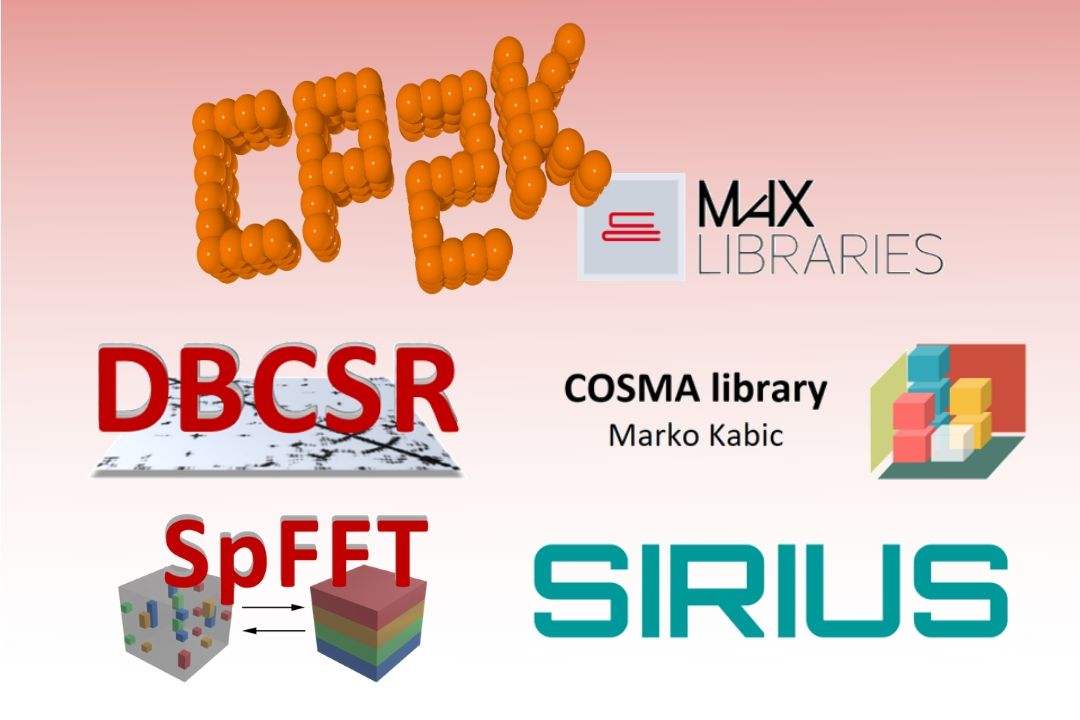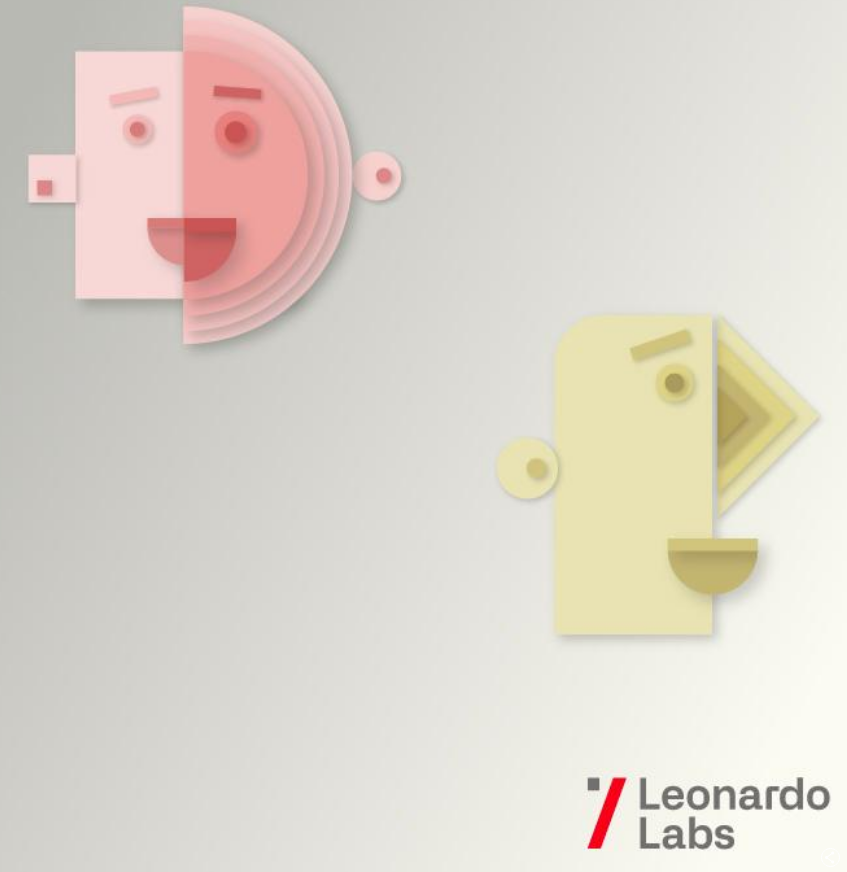European HPC Centre of Excellence at the heart of new materials discovery
3 June 2020, Modena Italy, MAX (MAterials design at the eXascale) releases new video on how it's pushing the boundaries of materials discovery as a European Centre of Excellence for High Performance Computing.
Materials play a fundamental role in our daily lives and have done for many centuries, bringing new advances since the dawn of man, from the bronze age to the iron age and ever more so with the new silicon age.
High Performance Computing (HPC) is the forefront of this technological revolution with public and private investments due to deliver exascale-class systems that will put Europe among the world leaders for supercomputing, science and industry using HPC.
When it comes to materials science in Europe, MAX is the Centre of Excellence for materials design at the exascale, making the discovery of metamaterials and new applications easier, faster and greener.
"The MAX Centre of Excellence is paving the way for the transition to and beyond exascale technologies by taking the most successful and most widely used open-source community codes in quantum simulations of materials to the exascale and by driving sustainable software developments to deal with the sudden technological disruptions expected in coming years, Prof. Elisa Molinari, MAX Director at CNR Nano at Modena (Italy) and Coordinator of MAX."
A new video just published by MAX zooms in on its key advances, from enabling materials modelling and simulations to discovery and design at the frontiers of High Performance Computing, High Throughtput Computing (HTC) and data analytics technologies.
The video, produced by MAX partner Trust-IT Services, shows how MAX is creating a wide range of ready-to-use open source solutions with multiple services for their existing and prospective users from science to industry, starting from fundamental physics, model approximations and computational algorithms.
But it doesn't stop here. MAX has six flagship codes especially designed for HPC that are in constant evolution towards exascale performance.
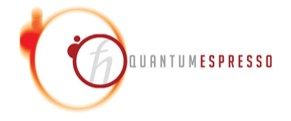 Quantum ESPRESSO (Quantum Open-Source Package for Research in Electronic Structure, Simulation, and Optimisation): an integrated suite of open-source computer codes for electronic-structure calculations and materials modelling at the nanoscale.
Quantum ESPRESSO (Quantum Open-Source Package for Research in Electronic Structure, Simulation, and Optimisation): an integrated suite of open-source computer codes for electronic-structure calculations and materials modelling at the nanoscale.
 YAMBO is an open-source code released within the GPL license for calculating and predicting the physical properties of materials related to light-matter interaction.
YAMBO is an open-source code released within the GPL license for calculating and predicting the physical properties of materials related to light-matter interaction.
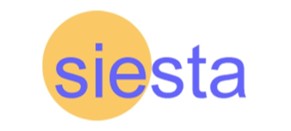 SIESTA is a first-principles materials simulation program based on density-functional theory (DFT). It is one of the first codes to enable the treatment of large systems with first-principles electronic structure methods, opening up new research avenues in many disciplines.
SIESTA is a first-principles materials simulation program based on density-functional theory (DFT). It is one of the first codes to enable the treatment of large systems with first-principles electronic structure methods, opening up new research avenues in many disciplines.
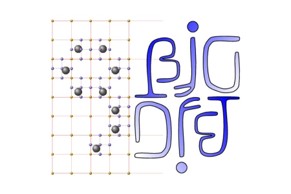 BigDFT is an electronic structure pseudopotential code that employs Daubechies wavelets as a computational basis, designed for usage on massively parallel architectures.
BigDFT is an electronic structure pseudopotential code that employs Daubechies wavelets as a computational basis, designed for usage on massively parallel architectures.
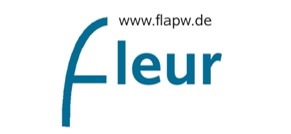 FLEUR (Full-potential Linearised augmented plane wave in EURope) is a code family for calculating ground state as well as excited-state properties of solids within the context of density-functional theory (DFT).
FLEUR (Full-potential Linearised augmented plane wave in EURope) is a code family for calculating ground state as well as excited-state properties of solids within the context of density-functional theory (DFT).
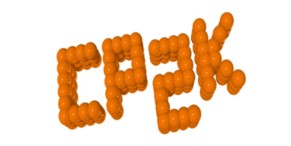 CP2K is a quantum chemistry and solid-state physics software package that can perform atomistic simulations of solid-state, liquid, molecular, periodic, material, crystal, and biological systems.
CP2K is a quantum chemistry and solid-state physics software package that can perform atomistic simulations of solid-state, liquid, molecular, periodic, material, crystal, and biological systems.
The MAX platform for workflows and data management.
 AiiDA (Automated Interactive Infrastructure and Database for computational science) is a Python materials informatics framework for managing, storing, sharing, and disseminating the workload of high-throughput computational efforts while providing an ecosystem for materials simulations where complex scientific workflows involving different codes and datasets can be seamlessly implemented, automated and shared.
AiiDA (Automated Interactive Infrastructure and Database for computational science) is a Python materials informatics framework for managing, storing, sharing, and disseminating the workload of high-throughput computational efforts while providing an ecosystem for materials simulations where complex scientific workflows involving different codes and datasets can be seamlessly implemented, automated and shared.
Learn more about MAX initiative, watch the MAX video now!
About MAX
MAX - MAterials design at the eXascale has received funding from the European Union's Horizon 2020 under Grant Agreement n.824143. Led by CNR (Italy), the MAX consortium partners includes SISSA (Italy), ICN2 (Spain), JUELICH (Germany), CEA (France), EPFL (Switzerland), Universiteit Gent (Belgium), CINECA (Italy), BSC (Spain), ETHZurich (Switzerland), E4 (Italy), ARM (United Kingdom), ICTP (Italy) and Trust-IT Services (Italy).
For more information about MAX, or to contact the project, you are invited to engage through a variety of social media channels:
www.max-centre.eu I @max_center2 I LinkedIn/company/max-centre
Press contact goes here for any information, please write to info@max-centre.eu.
Keywords: High-Performance Computing (HPC), Materials design, materials modelling, materials simulation, High Throughput Computing (HTC), materials science, data analytics, computational algorithms


